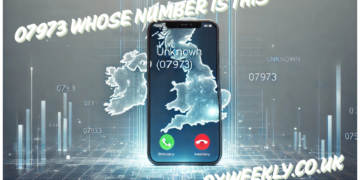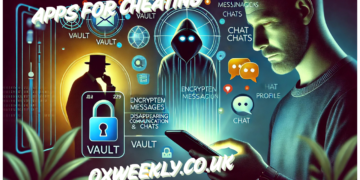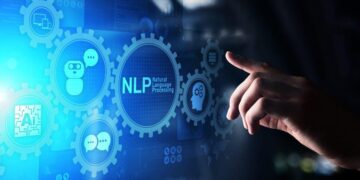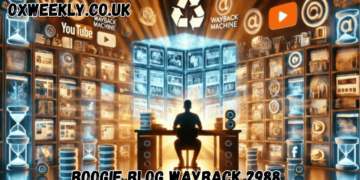Introduction to Koalageddon
Many people are intrigued by the term “Koalageddon,” which has generated discussions and arguments in a variety of internet forums. This tutorial will provide you all the information you need, regardless of whether you have heard of the idea previously or are unfamiliar with it. We will explore the history, importance, effects, and prospects of Koalageddon in this in-depth piece.
What is Koalageddon?
The phrase “Koalageddon,” which combines the words “Koala” and “Armageddon,” conjures up images of a major koala-related disaster or upheaval. Despite its initial funny appearance, Koalageddon is a representation of actual ecological, conservation, and environmental problems that impact koalas and their habitats. The expression has become well-known in social media, environmental advocacy, and even the gaming community, where it represents significant issues that require prompt response.
The Origins of Koalageddon
The word Koalageddon developed from concerns about the dwindling koala population, primarily owing to deforestation, climate change, and human encroachment. In recent years, Australia has suffered devastating wildfires, habitat destruction, and illnesses like chlamydia impacting koalas. These causes have resulted to a severe fall in their populations, causing campaigners and conservationists to refer to the catastrophe as “Koalageddon.”
Additionally, Koalageddon has been used metaphorically in other contexts, including gaming and pop culture, to represent an apocalyptic scenario or an unstoppable force affecting a given environment.
The Impact of Koalageddon on Koalas
1. Deforestation and Habitat Loss
Koalas are primarily dependant on eucalyptus woods for food and refuge. However, excessive deforestation, urban growth, and land removal for agriculture have significantly limited their natural habitat. Without appropriate area to live and procreate, koalas face rising challenges to their existence.
2. Climate Change and Natural Disasters
Rising temperatures, extended droughts, and frequent wildfires have aggravated the situation for koalas. The severe bushfires of 2019-2020, nicknamed as Black Summer, resulted in the loss of almost 60,000 koalas. Climate change continues to pose a grave risk, making conservation measures more vital than ever.
3. Diseases and Health Threats
One of the biggest threats to koala populations is the spread of chlamydia, a bacterial infection that can cause blindness, infertility, and death if left untreated. Conservationists are working on vaccination programs to curb the disease, but it remains a significant challenge.
4. Human Interaction and Road Accidents
Koalas often find themselves in urban areas due to habitat destruction, leading to increased road accidents and injuries. Many koalas are hit by cars while attempting to cross roads, and domestic pets like dogs pose an additional threat to their safety.
Why Koalageddon Matters to the World
Koalageddon is a global warning about the dangers of environmental irresponsibility, not just an Australian concern. Koala extinction highlights more significant issues with sustainability, conservation, and biodiversity. Koalas, one of Australia’s most well-known animals, continue to hold cultural and economic significance and draw millions of tourists each. International tourism, environmental policy, and ecosystems would all be significantly impacted if they vanished.
The Role of Conservation Efforts in Combating Koalageddon
Several conservation groups and governmental initiatives are working tirelessly to mitigate the effects of Koalageddon. Here are some of the key strategies being implemented:
1. Reforestation and Habitat Protection
Organizations are actively planting trees and restoring koala habitats to provide safe environments for them to thrive. Protected national parks and wildlife corridors are crucial for their long-term survival.
2. Wildlife Rescue and Rehabilitation Centers
Many injured or orphaned koalas are taken to wildlife hospitals, where they receive medical treatment and care before being released back into the wild. These centers play a vital role in preserving koala populations.
3. Legislation and Policy Changes
Governments are enacting stricter laws to prevent deforestation, regulate land clearing, and increase penalties for harming koalas. The Australian government has also declared koalas as an endangered species in certain regions, which provides additional legal protection.
4. Public Awareness and Activism
Raising awareness about Koalageddon is crucial to mobilizing support for conservation efforts. Social media campaigns, fundraising events, and educational programs encourage individuals to contribute to koala protection initiatives.
How You Can Help Prevent Koalageddon
Every individual can play a role in preventing Koalageddon and ensuring the survival of koalas. Here are some practical ways you can contribute:
- Support Conservation groups: You may directly affect koala conservation efforts by volunteering or making a gift to wildlife rescue groups.
- Choose sustainable things that don’t contribute to deforestation to decrease your influence on the environment.
- Drive cautiously in Koala Zones: To prevent accidents, drive cautiously and pay attention to road markers that identify koala habitats.
- Raise Awareness: Use social media to warn people about Koalageddon and urge them to take action.
- Plant Trees: To aid in giving koalas food and shelter, plant eucalyptus trees if you can.
The Future of Koalageddon: What Lies Ahead?
The fight against Koalageddon is ongoing, but with increased awareness, conservation efforts, and global support, there is hope for the future of koalas. Scientists and researchers continue to develop innovative solutions, such as genetic studies to improve disease resistance and artificial intelligence monitoring for better tracking of koala populations.
While the challenges remain significant, collective action can make a difference. If more individuals, organizations, and governments work together, the threat of Koalageddon can be minimized, ensuring that koalas continue to thrive for generations to come.
Conclusion
Koalageddon serves as a sobering reminder of the environmental issues that threaten ecosystems throughout the world in addition to koalas. We may make genuine attempts to save one of the most beloved species in the planet if we comprehend the reasons, effects, and solutions. Every action counts, and if the right policies are put in place, we can stop Koalageddon and protect the environment for coming generations.
This guide serves as a call to action—now is the time to act before it is too late.

































